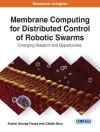This book introduces new compilation techniques, using the polyhedron model for the resource-adaptive parallel execution of loop programs on massively parallel processor arrays. The authors show how to compute optimal symbolic assignments and parallel schedules of loop iterations at compile time, for cases where the number of available cores becomes known only at runtime. The compile/runtime symbolic parallelization approach the authors describe reduces significantly the runtime overhead, compared to dynamic or just‐in-time compilation. The new, on‐demand fault‐tolerant loop processing approach described in this book protects loop nests for parallel execution against soft errors.
Mục lục
Introduction.- Fundamentals and Compiler Framework.- Symbolic Parallelization.- Symbolic Multi‐level Parallelization.- On‐demand Fault‐tolerant Loop Processing.- Conclusions.
Giới thiệu về tác giả
Alexandru-Petru Tanase is a researcher at the Department Of Computer Science, Friedrich Alexander University Erlangen-Nürnberg (FAU), since 2011. He defended his Phd Degree on the topic of “Symbolic Parallelization of Nested Loop Programs” in September, 2017. He received his Diploma Degree in Computer Engineering In 2006 and Master Degree in Parallel Processing in 2008 from ULBS University, Romania. His main research interests include high level synthesis, programmable hardware accelerators, the design of massively parallel architectures, mapping methodologies for domain-specific computing, and architecture/compiler co-design.
Frank Hannig leads the Architecture And Compiler Design Group in the CS Department at the Friedrich-Alexander University Erlangen-Nürnberg (FAU), Germany, Since 2004. He received a Diploma Degree in an interdisciplinary course of study in EE and CS from the University of Paderborn, Germany in 2000 and a Ph.D. Degree (Dr.-Ing.) in CS from FAU In2009. His main research interests are the design of massively parallel architectures, ranging from dedicated hardware to multi-core architectures, mapping methodologies for domain-specific computing, and architecture/compiler co-design. Frank is a Senior Member of the IEEE and an Affiliate Member of the European Network of Excellence on High Performance and Embedded Architecture and Compilation (Hi PEAC).
Jürgen Teich is with Friedrich-Alexander-Universität Erlangen-Nürnberg (FAU), Germany, where he is Head of the Chair of Hardware/Software Codesign since 2003. He Received The M.S. Degree (Dipl.- Ing.; with Honors) from the University of Kaiserslautern, Germany, in 1989 and the Ph.D. Degree (Dr.-Ing.; Summa Cum Laude) from the University of Saarland, Saarbruecken, Germany, in 1993. Prof. Teich has organized various ACM/IEEE conferences/symposia as Program Chair, including CODES+ISSS 2007, FPL 2008, ASAP 2010, and DATE 2016. He is the Vice
General Chair of DATE 2018 and will be the General Chair of DATE 2019. Moreoever, he serves in the editorial boards of multiple scientific journals, such as ACM TODAES, IEEE Design and Test, IET Cyber-Physical Systems, and JES. He has edited two textbooks on Hardware/Software Codesign and The Handbook of Hardware/Software Codesign (Springer). Since 2010, he has also been the Principal Coordinator of the Transregional Research Center 89 “Invasive Computing” on Multicore Research, funded by the German Research Foundation (DFG). Since 2011, he is a member of Academia Europaea, the Academy of Europe.












